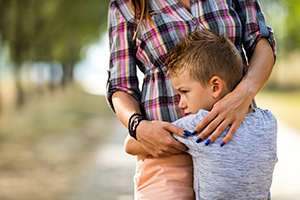Disaster, Trauma, and ADHD

From natural disasters to human assaults, to protracted traumas such as war and violent neighborhoods, the psychological impact of adverse events to survivors can be serious and often lasting. This is post-traumatic stress disorder (PTSD)―an anxiety disorder characterized by intense, disturbing thoughts and feelings, flashbacks or nightmares; depression, fear or anger; or detachment from other people.
Children are more affected by trauma than adults and the younger the child, the greater the impact.
“Psychological trauma can have detrimental effects on brain function that are not only lasting but that may alter patterns of subsequent neurodevelopment, particularly in children,” say researchers Deborah A. Weber Loftis, PhD, and Cecil R. Reynolds, PhD, of the Department of Educational Psychology at Texas A&M University.
PTSD and ADHD: Co-occurrence or overlapping symptoms?
There has been a great deal of research linking PTSD and ADHD.
- One study found that a “lifetime prevalence of PTSD was significantly higher among adults with ADHD compared with controls;”
- Another study concluded that the co-occurrence of the disorders “led to greater clinical severity regarding other psychiatric…and psychosocial dysfunction,” and that there is a strong familial relationship between them.
- A third study found an association with IQ in people who have co-occurring PTSD and ADHD.
Diagnosis and treatment can be challenged when considering symptoms common to PTSD and ADHD:
- difficulty concentrating and learning
- easily distracted
- often doesn’t seem to listen
- disorganization
- hyperactive
- restless
- difficulty sleeping
Coping with trauma
The ability of children to effectively cope with traumatic events and conditions depends not only on their specific coping behaviors but also on factors in the support environment.
Coping behaviors can be either avoidant (anger, social withdrawal, blame) or active (cognitive restricting, which means to find a positive or realistic way to think about a bad situation). Variations on these coping styles can include overtly expressing feelings, wishful thinking, distractions, acceptance/resignation, seeking social support, and emotional numbing.
The American Red Cross and FEMA recommend returning to familiar routines as soon as possible to reduce the likelihood or severity of PTSD symptoms.
The degree to which community supports exist to provide shelter, food, clothing and other services were also found to alleviate PTSD symptoms in both children and adults. The need for such support is even more important for low-income residents, who were found to experience the most severe symptoms.
Children and adolescent survivors of major disasters who receive psychological intervention experience reduced or less severe symptoms of trauma than those who lack such care.
However, there has not been conclusive research that quantifies the degree to which contingent factors such as treatment modality (group vs. individual), providers’ training, timing of intervention, etc., affect outcomes. All the dependent variables such as the type of disaster or adverse event, degree of exposure to the event, duration of the event, demographic and cultural attributes, sequencing of intervention components, therapeutic approach, etc., have not been examined in a rigorous analysis.
What you can do:
- Regardless of whether your home has been damaged or destroyed, and whether your family has been displaced or separated, provide a positive and supportive environment using active coping behaviors.
- Resume familiar routines as soon as possible.
- Seek therapeutic services as soon as possible―for yourself and for your family.
- When ADHD is present, seek specialists who have expertise in both trauma and ADHD.
- Be persistent in accessing basic services; read Resources for Helping Your Family Cope with an Emergency in this issue for tips and links.
- Monitor yourself and your family for behaviors that reflect trauma.
Children who survived Hurricane Katrina are showing the effects of trauma years later. The impact of traumatic events can persist long after the initial life-threatening danger―loss of home, possessions, food, neighborhood, school, friends, sometimes family―all of which continue as reminders of the original danger. How does trauma impact mental health―particularly in cases of ADHD, and what are ways to cope?
Other Articles in this Edition
ADHD and Migraines are Likely Partners
